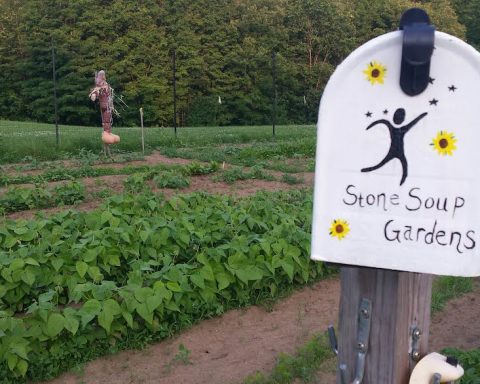FRANKLIN COUNTY – With a grant from the Betterment Fund in early 2022, the Greater Franklin Food Council (GFFC) hired Sue Davis of Kingfield to survey Franklin County farmers. The purpose was to establish a connection to farms and farmers and to prioritize long-term strategic goals for the Food Council. Of the 89 farmers identified, 35 responded. The survey had two components, a short-answer, data collection piece that was emailed followed by an in-person interview through a farm visit or a phone call.
Of the 35 interviewed, 22 were first generation farmers of whom 40% have been farming for 10 years or less. More than half were women, reflecting the growth of women farmers in the region. Many farmers had one or more members of the family working “off farm.”
Multiple sales approaches included You Pick and website/social media, CSAs (Community Supported Agriculture), farm stands, farmers’ markets, and direct selling to restaurants, grocery stores and other outlets. Larger farms engaged in fewer methods, sometimes wholesale, as in milk and maple syrup.
Concentrated on food, their products included primarily fruits and vegetables as well as honey, maple syrup and livestock for meat and eggs. Some farmers had licensed kitchens to produce value-added products. Most farms produced multiple products.
Farmers surveyed made use of many available professional and educational resources, from the UMaine Cooperative Extension to USDA-NRCS (US Dept. of Agriculture/Natural Resources Conservation Services). Of these the primary resources were the Cooperative Extension and the USDA Farmer Service Agency, followed by MOFGA (Maine Organic Farmers and Gardeners Association) and the ME Dept. of Agriculture.
Farmers loved their connection to customers, at their Farmers’ Markets, farm stands and through their CSAs. They were also proud of their heritage breed animals and their high-quality feed and seed, often garnering accolades with their certifications. Soil health, animal health and human health motivated and inspired them.
Pointed out by so many, farming is more a calling than a profession—a lifestyle and a career. Independence was important. From raising kids on the farm to getting help from extended family, almost every farm was a family farm.
Many farmers found success with innovation and diversification. A single farm raising a single crop for a single market was not the path these Western Maine farmers followed. Many had great ideas about improving farming and addressing food insecurity issues. Many had significant infrastructure plans and ideas for their farms. Funding for improvements and expansions was a big topic.
Areas of primary concern included legislation, marketing, networking and finances.
Legislative interests centered on butchering and processing for meat and dairy, stronger support for farmers and for women farmers in particular, especially in purchasing equipment. Marketing farm products was critical. Networking opportunities—engaging in an active and productive dialogue with other farmers—appealed to them, both annually on a big scale and monthly on a smaller scale. Financial concerns centered on grants, inflation and managing the financial aspects of running a farm.
With new connections to greater Franklin County farmers and their needs, GFFC now has a good start on setting their strategic goals. The full farmer survey report can be found at www.greaterfranklinfoodcouncil.org.







